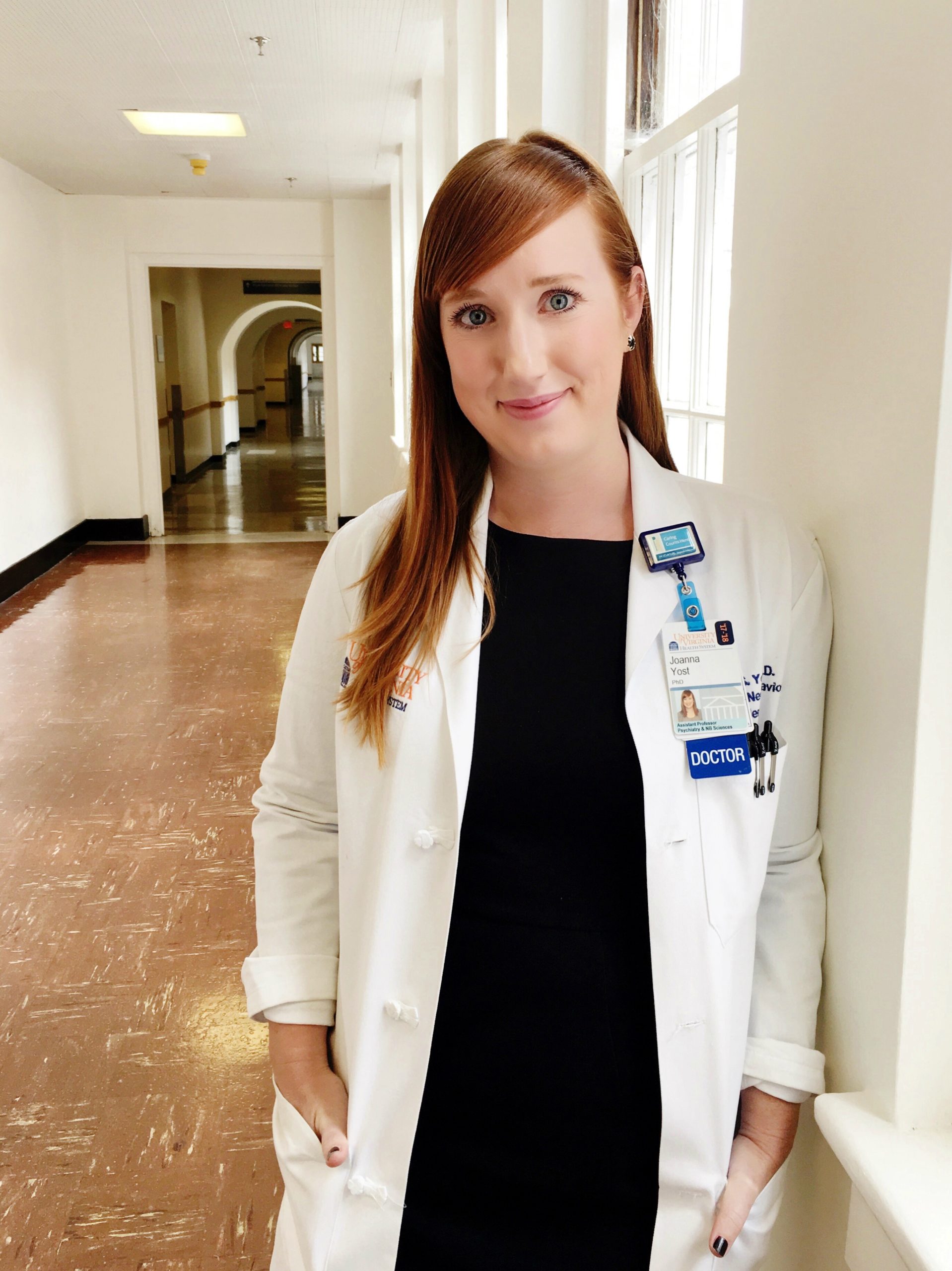Coping with COVID-19 in an Academic Medical Center: The role of Psychology
$10.00
Presenter: Joanna Yost, PhD is an Assistant Professor of Psychiatry and Neurobehavioral Sciences at the University of Virginia School of Medicine. She is the director of the Behavioral Emergency Response Team and co-director of the Behavioral Medicine Consultation-Liaison service at UVA Health. Dr. Yost’s work focuses on reducing behavioral emergencies in medical inpatient settings through the use of behavior management techniques, brief CBT interventions, and staff trainings on basic cognitive and behavioral principles. At the beginning of the covid-19 pandemic, Dr. Yost was appointed to the UVA Health Team Member Wellbeing Task Force. Her role on this taskforce includes spearheading the development and implementation of a variety of psychological services for frontline healthcare workers with a special focus on healthcare workers in the Special Pathogens Units providing direct care to patients who are Covid-19 positive.
Overview: Clinician burnout has long been a concern in healthcare settings and previous research has demonstrated burnout is elevated among clinicians during outbreaks and public health emergencies (Kim & Choi, 2016; Maunder et al., 2006). Additionally, moral distress is heightened during pandemics (Greenberg et al., 2020). The covid-19 pandemic has stressed already overburdened healthcare systems and introduced new concerns for frontline healthcare workers, including PPE, childcare, and effective communication (Shanafelt et al., 2020). Both the Psychological First Aid (Ruzek et al., 2007) and the Stress Continuum (Nash, 2011) Models provide a framework for how to increase coping and monitor stress responses during and following crisis situations that can be applied to the covid-19 pandemic. The role of psychologists within the context of these models will be explored. Further, the rapidly deployed comprehensive psychological services designed to mitigate burnout among clinicians during covid-19 at one academic medical center will be discussed.
Learning Objectives:
- Identify risk factors for trauma and burnout among health care providers
- Describe two models designed to decrease initial stress and increase coping during a crisis and their application to the COVID crisis
- List the range of services psychologists can provide within stress models when applied in a large academic medical center
Description
Presenter: Joanna Yost, PhD is an Assistant Professor of Psychiatry and Neurobehavioral Sciences at the University of Virginia School of Medicine. She is the director of the Behavioral Emergency Response Team and co-director of the Behavioral Medicine Consultation-Liaison service at UVA Health. Dr. Yost’s work focuses on reducing behavioral emergencies in medical inpatient settings through the use of behavior management techniques, brief CBT interventions, and staff trainings on basic cognitive and behavioral principles. At the beginning of the covid-19 pandemic, Dr. Yost was appointed to the UVA Health Team Member Wellbeing Task Force. Her role on this taskforce includes spearheading the development and implementation of a variety of psychological services for frontline healthcare workers with a special focus on healthcare workers in the Special Pathogens Units providing direct care to patients who are Covid-19 positive.
Overview: Clinician burnout has long been a concern in healthcare settings and previous research has demonstrated burnout is elevated among clinicians during outbreaks and public health emergencies (Kim & Choi, 2016; Maunder et al., 2006). Additionally, moral distress is heightened during pandemics (Greenberg et al., 2020). The covid-19 pandemic has stressed already overburdened healthcare systems and introduced new concerns for frontline healthcare workers, including PPE, childcare, and effective communication (Shanafelt et al., 2020). Both the Psychological First Aid (Ruzek et al., 2007) and the Stress Continuum (Nash, 2011) Models provide a framework for how to increase coping and monitor stress responses during and following crisis situations that can be applied to the covid-19 pandemic. The role of psychologists within the context of these models will be explored. Further, the rapidly deployed comprehensive psychological services designed to mitigate burnout among clinicians during covid-19 at one academic medical center will be discussed.
Learning Objectives:
- Identify risk factors for trauma and burnout among health care providers
- Describe two models designed to decrease initial stress and increase coping during a crisis and their application to the COVID crisis
- List the range of services psychologists can provide within stress models when applied in a large academic medical center






Reviews
There are no reviews yet.